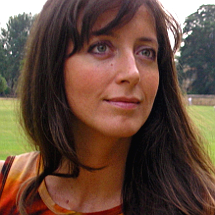Tell us about yourself: what do you teach at Ca' Foscari, what are your interests and research areas?
I teach "Philosophy of Literature", "Poetics and Rhetoric" in the Bachelor's degree of Philosophy and Humanities; "Philosophy of Language" and "Art, Mind, Language" in the Master's degree of Philosophy at the Department of Philosophy and Cultural Heritage. My research lies between aesthetics and philosophy of language. The symbolic operations of structuring new ways of expression, as well as the analysis of limits and possibilities of constructing shared social meanings, are at the heart of my interests. My projects include: the epistemology of literature; the problem of expression between art, mind and language; the relation between literature and moral philosophy; the relation between language and memory.
What does teaching and researching mean to you?
I love teaching: seeing the moment when research meets the eyes of students, their curiosity, their interest. I learned what teaching and researching mean by looking at some extraordinary mentors. I would like to recall some names linked to the period of study at the University of Pisa. They are the reason for all subsequent transformations: Remo Bodei, Aldo Giorgio Gargani, Carlo Ginzburg, Giulio Lepschy, Anna Laura Momigliano, Francesco Orlando, Mario Reale. For me, improving research also means improving teaching.
Have you always known that this was going to be your path?
Looking back, I can say that I have always tried to see where something new and, at the same time, ancient could be discovered. It was my love of books and reading that guided me. At grammar school I was in love with history, literature, art, ancient languages and science. Philosophy seemed far from a priority: that insight into past and present relationships, where every face and voice requires the utmost attention to protect a fragile humanity, constantly exposed to violence, to lies. Convinced of this, in my first year of studies at the University of Pisa, I left the programme in Conservation of Cultural Heritage, which I had enrolled in to follow my passion for art (which I have never abandoned), and switched to Law. I wanted to learn about the rational form of coexistence by approaching the problem of justice and its practices, in order to define the boundaries of injustice and thus try to curb its effects. I had to respond to a sense of political belonging, by investigating a civil responsibility towards the community. This motivation actually found another form of expression: one day I entered a classroom in the Philosophy Department where Aldo Giorgio Gargani was giving a lecture. I saw the general form of the proposition in Wittgenstein's "Tractatus logico-philosophicus" written on the blackboard and I realised that I had to know more. There was something in the logic of thought and language, in the practices of thought-language, that underlied my search for truth and justice. In that classroom, now dedicated to Francesco Barone, Gargani's teacher, the same ancient pact between teacher and pupil was renewed.
What are you most passionate about in your research?
The possibility of comparing history and present, thought and action, overcoming the separation between disciplines. There are methods and objectives to compare beyond the separation of worlds, such as science and art, which we can see as generated by a common creative root. I am fascinated by the process of this feat where we learn from experience while trying to understand it. The relation between freedom and constraint of analysis is projected into a social relationship that must be built on shared principles. The research community is this arena of dialogue which, if it responds with honesty, fairness and responsibility to common values, which can be criticised and improved, can transform the possibilities of the present. Then there is the unpredictable aspect of research, in the encounter between disciplines, purposes and methods, which is an encounter between people. So you never stop learning.
Can you offer any advice to researchers in the early stages of their career?
I remind them to try to discover and follow Gaston Bachelard's secret motivation: "a fury seizes me to educate myself again, to eliminate, as a result, the blank sheet of paper to study a book, a difficult book, always a little too difficult for me. In the tension in front of a book with a rigorous development, the spirit builds and reconstructs itself. Every becoming of thought, every coming of thought, is in a reconstruction of the spirit".

